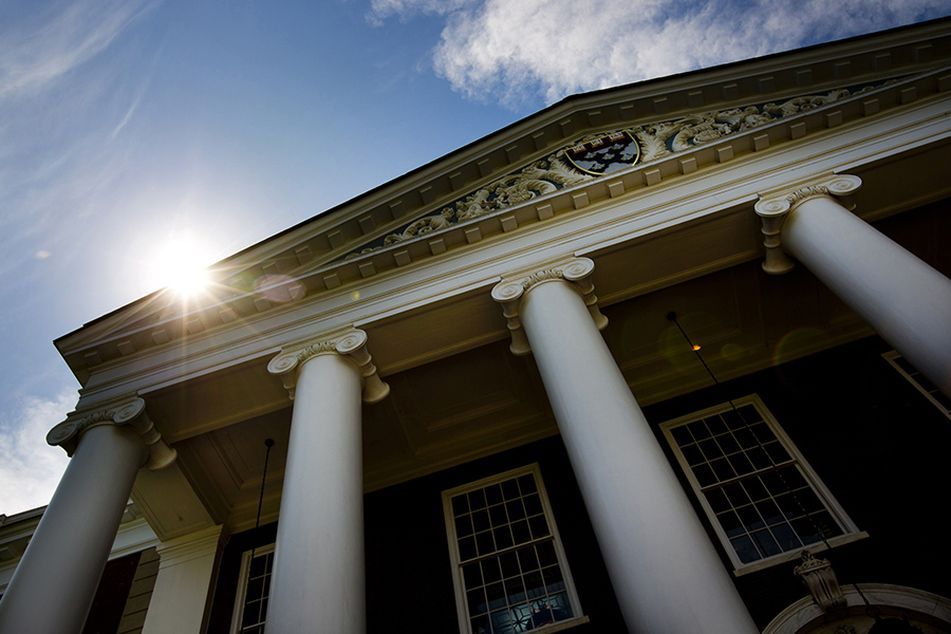Advisers see college admissions scandal as tip of the iceberg

Parents' conduct is described as 'disgusting' but not surprising given the current state of higher education.
The college admissions scandal in which dozens of wealthy parents are accused of various forms of cheating and bribery to get their children into elite universities is generally viewed as outrageous but not surprising by the financial planning community.
“I haven’t seen anybody do anything like this, but I do see the sense of desperation from parents about getting their kids into college, even if the kids are getting the best grades,” said Blair duQuesnay, a financial adviser at Ritholtz Wealth Management.
“Every wealthy parent I know with a kid in high school has hired a consultant to help their kids get into college,” Ms. duQuesnay said. “I never thought until yesterday that it might turn sinister in some way.”
The sinister efforts to get kids into college were made public yesterday when 33 parents, including celebrities and high-profile executives, were charged with bribing college coaches and admissions personnel to help get their kids accepted to college. A number of coaches were also charged, along with a college admissions consultant.
In addition to paying bribes and claiming that non-athletes were athletes, the wealthy parents also allegedly conspired to help their children cheat on college entrance exams.
Among the big names and Hollywood celebrities, the former CEO of Pacific Investment Management Co., Douglas Hodge, was charged with paying hundreds of thousands of dollars to get two of his children admitted to the University of Southern California as athletic recruits.
“I’d say they were just being cheapskates, because they could have just paid for a new building to get their kids accepted instead of resorting to illegal activity,” said David Mendels, director of planning at Creative Financial Concepts.
As the mother of four teenaged daughters, Catherine Valega, vice president of wealth management and communications at Sapers & Wallack, can relate to the competitive nature of college admissions, but she said parents shouldn’t be discouraged by these “gross and disgusting examples of cheating.”
“What these people are accused of doing is pretty awful, and we know that the college admissions process is stacked toward the wealthy, regardless,” she said. “I can see how it might add to the panic when you see even wealthy people have to pay to get their kids into schools. But if your kids are hard-working and well-rounded, there are plenty of schools that will be a fit for them and you financially.”
While Tuesday’s news centered on clients of The Key, a college admissions consulting business that allegedly took in at least $25 million from parents seeking to get their children admitted to colleges, some see the allegations as just the tip of the iceberg.
“It’s shameful, and it’s worth pointing out that these illegal activities are discriminating against talented students,” said Mark Kantrowitz, publisher and vice president of research at Savingforcollege.com.
“This is just the tip of the iceberg, and the problem is the colleges don’t do enough verification,” he said. “I would do more statistical analysis to detect fraud, have some automated fraud detection and have a manual review.”
Doug Boneparth, president of Bone Fide Wealth, agreed that there are obvious gaps in the system that allow blatant cheating and bribery to be employed to get students admitted to colleges, but he also thinks there’s a larger problem with the way Americans view and value college.
“We’ve convinced the American public that they need a college degree to participate in accumulating wealth, and this could be the top of the market in terms of how backwards this is starting to become,” Mr. Boneparth said. “Because there is an increase in demand, and because the cost of college has increased around 6% per year, we’ve created this situation where not only are we seeing wealthy parents willing to do anything, but we’ve also created a situation where everybody else has to borrow huge sums of money to get a degree that might not even provide a return on investment.”
Ms. duQuesnay of Ritholtz Wealth Management also sees a need to step back and readjust the focus on higher education.
“Going to a top-level school definitely helps with that first job and it also gives you access to a community of alumni, but beyond that you’re on your own, based on your abilities,” she said. “I have long told even wealthier clients that there’s nothing wrong with starting at a community college and then transferring to a university where you want to graduate.”
Learn more about reprints and licensing for this article.








